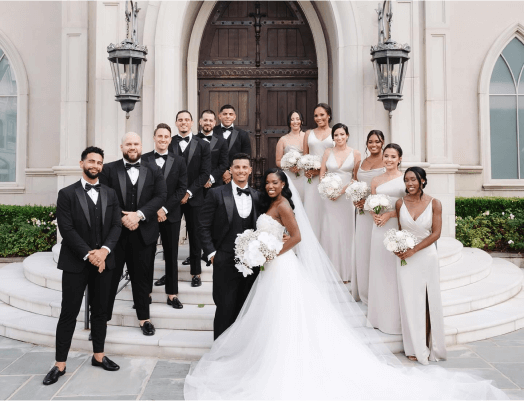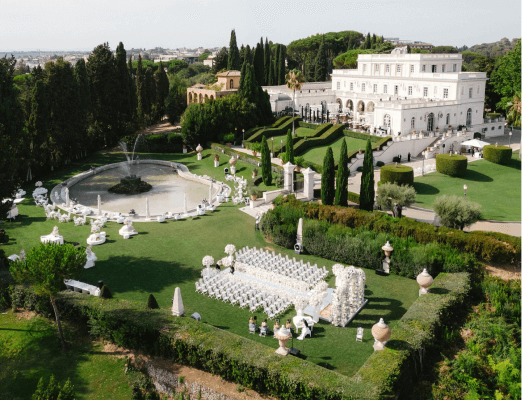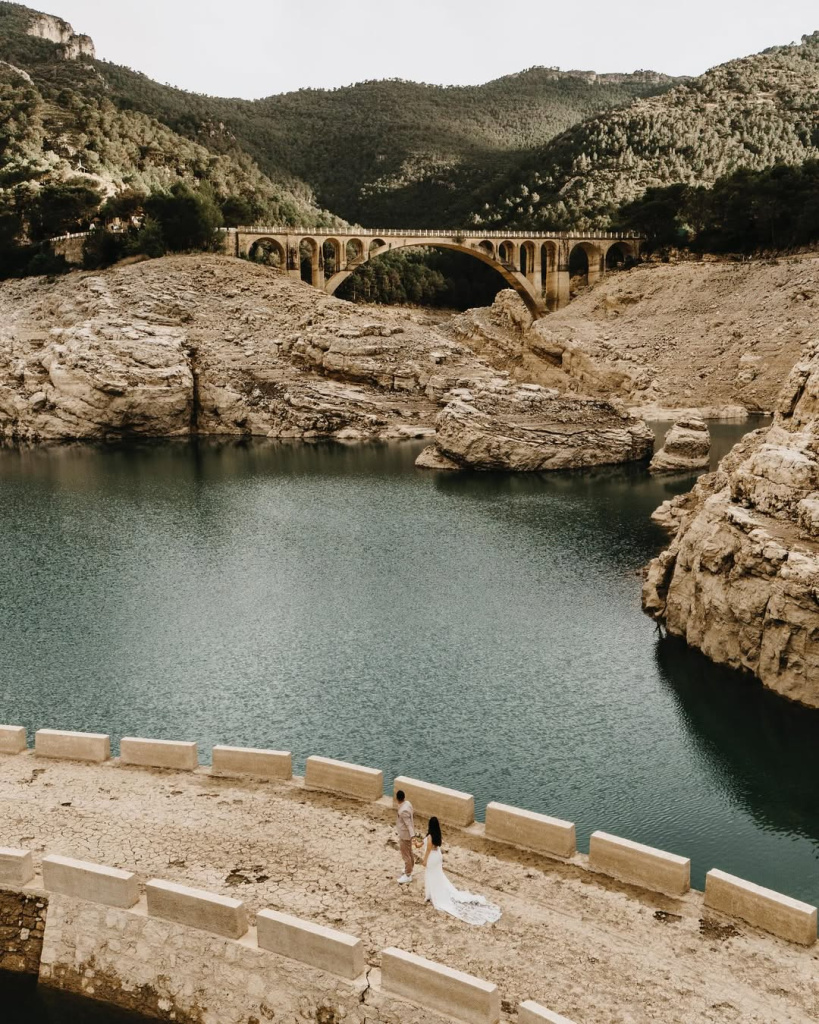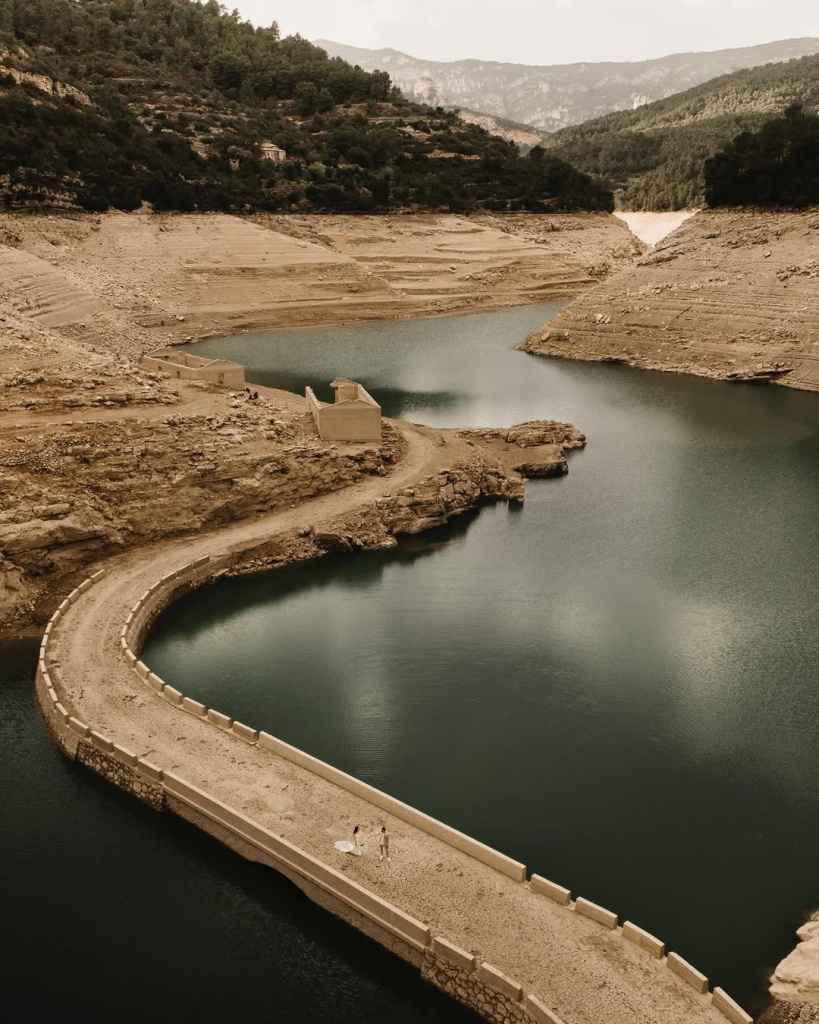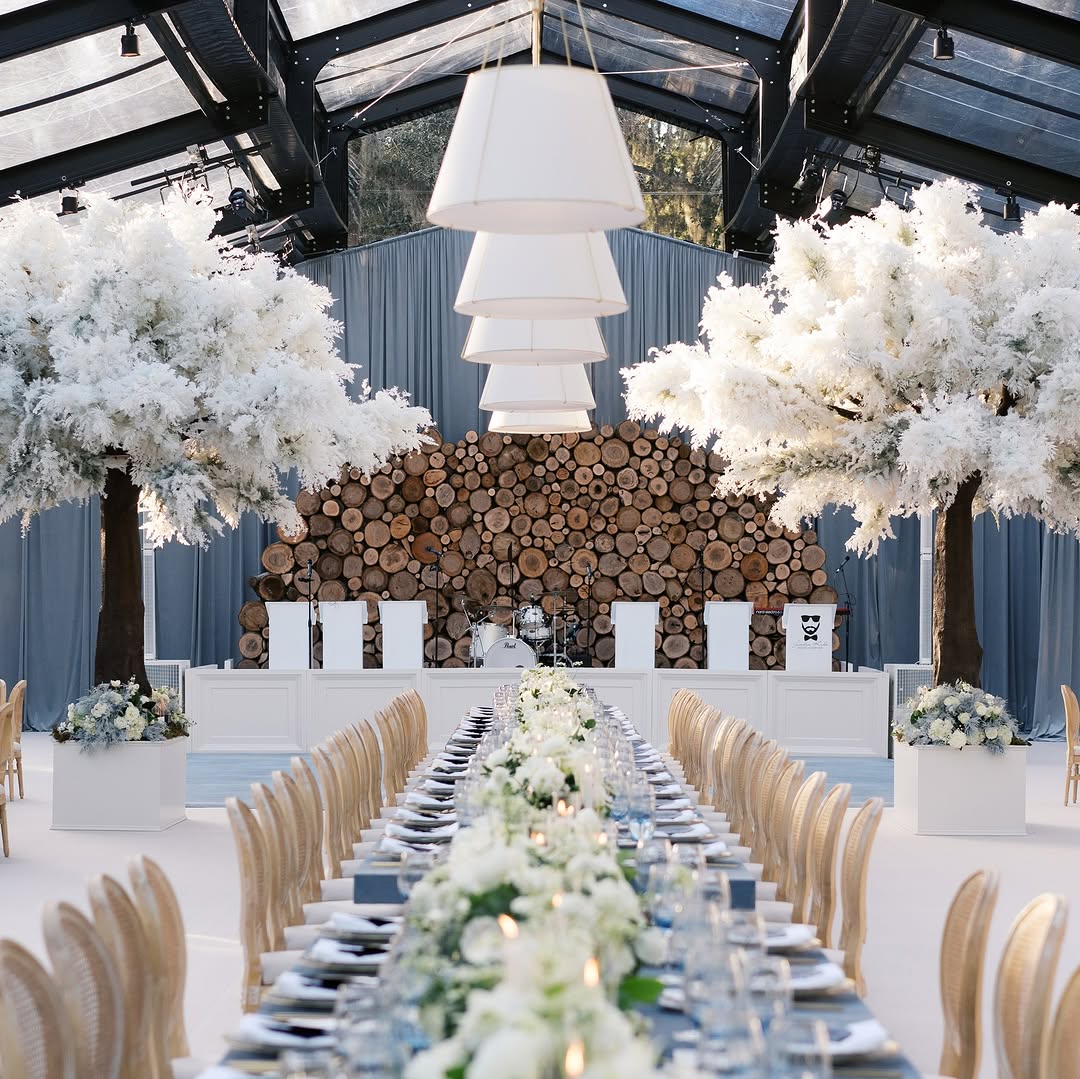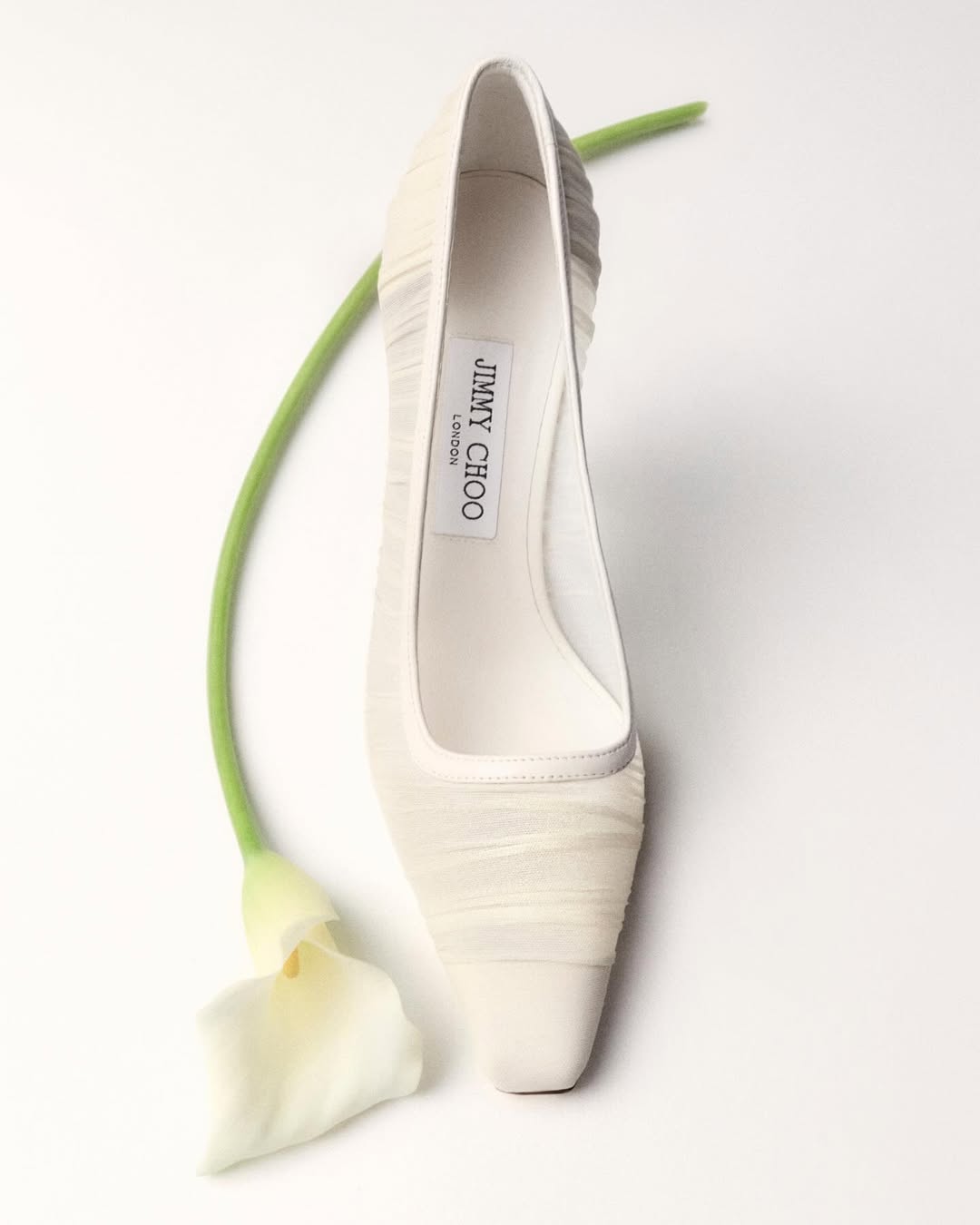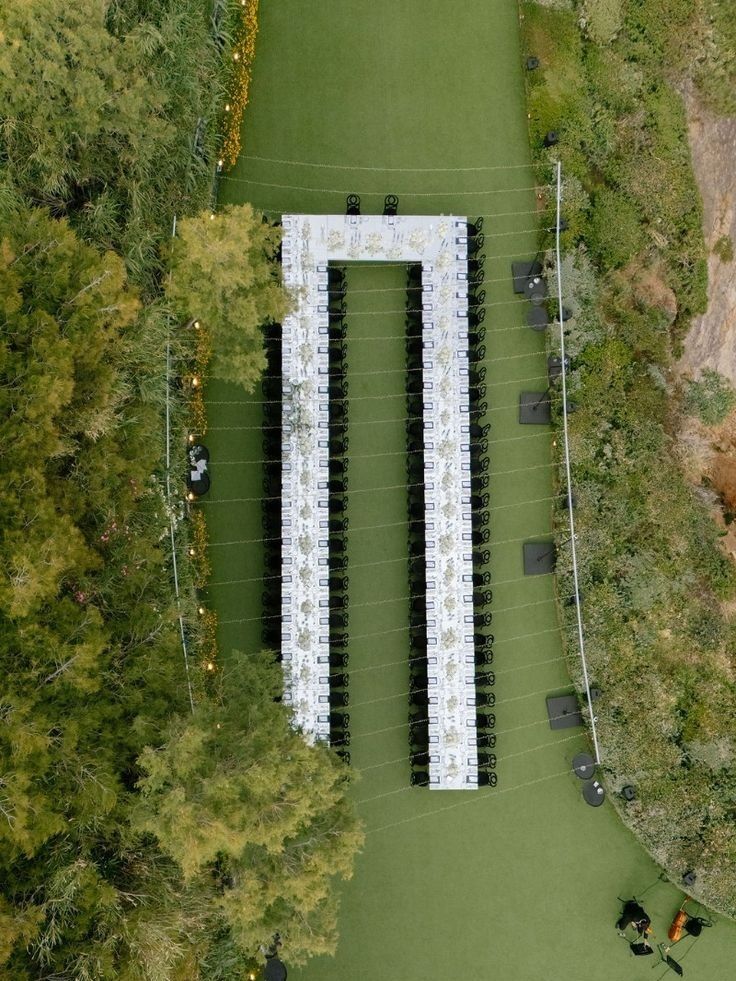The Ultimate Guide to Planning a Dream Spain Wedding
- Author: Natali Grace Levine
- Reading time: 38 min 50 sec
- Publication date: 04/11/2025
- Updated: 01/06/2026
- Why Choose Spain as Your Wedding Destination?
- Spain Wedding Locations That Will Leave You Breathless
- Navigating the Legal Side of Your Spain Wedding
- How Much Does a Spain Wedding Really Cost?
- Spain Wedding Packages: What’s Included and How to Choose the Best One for You
- Choosing the Right Spain Wedding Planner
- Selecting the Perfect Spain Wedding Venues
- How to Choose the Best Spain Wedding Photographer and Videographer
- Spain Wedding Destinations: Most Photogenic Places
- Delicious Spain Wedding Food Ideas That Will Wow Your Guests
- Unique Spain Wedding Decor Ideas
- Elegant & Effortless Spain Wedding Attire
- The Ultimate Guide to Spanish Wedding Entertainment
- Where to Stay: The Best Accommodation Options for Your Spain Wedding
- Smooth Transportation Logistics for a Stress-Free Spain Wedding
- Traditional Spain Wedding Favors
- Spain Wedding Adventure: Essential Pre & Post-Wedding Activities You’ll Love
- Must-Have Packing Essentials for a Spain Wedding
- Spain Wedding Traditions to Know
- Spain Wedding Etiquette: Essential Tips for Respecting Local Traditions
- How to Navigate Language Barriers at Your Spain Wedding
- Spain Wedding Health and Safety
Congratulations on considering Spain for your destination wedding! Imagine saying "I do" beneath golden sunsets, surrounded by breathtaking landscapes, historic architecture, and vibrant cultures. Spain is not just a wedding destination; it's an experience full of color, romance, and unforgettable moments. Whether you're dreaming of a coastal paradise, an intimate rustic villa, or a grand historic castle, Spain offers everything you need to create the perfect celebration. This guide walks you step-by-step through planning the wedding of your dreams, ensuring it’s magical, stress-free, and uniquely yours.




Find Your Perfect Wedding Vendors
Why Choose Spain as Your Wedding Destination?
When you choose Spain, you're choosing gorgeous weather, jaw-dropping scenery, and endless charm. Imagine soaking up warm sunshine, enjoying gentle Mediterranean breezes, and exchanging vows surrounded by stunning landscapes. From Barcelona's vibrant streets and Seville’s romantic elegance to Mallorca’s turquoise beaches or Madrid’s sophisticated flair, Spain delivers incredible settings wherever your heart leads you.
Spain's rich history and spectacular architecture mean you'll capture unforgettable wedding photos. Picture your special day unfolding in majestic castles, beautiful seaside villas, rustic farmhouses, or lush Andalusian gardens. Every corner offers beauty blended effortlessly with comfort and style.
What makes a Spanish wedding truly special is the warmth and hospitality of its people. You'll experience heartfelt celebrations filled with lively traditions, laughter, and genuine joy. And let’s not forget the mouth-watering Spanish cuisine—from colorful tapas, flavorful paellas, fresh seafood, to local wines and irresistible desserts, your guests will leave feeling wowed by every bite.
Finally, getting to Spain is easy, thanks to excellent transportation links and plenty of accommodation options. Your guests will enjoy a hassle-free journey, allowing everyone to fully embrace the joy of celebrating your love in this magical country.




Spain Wedding Locations That Will Leave You Breathless

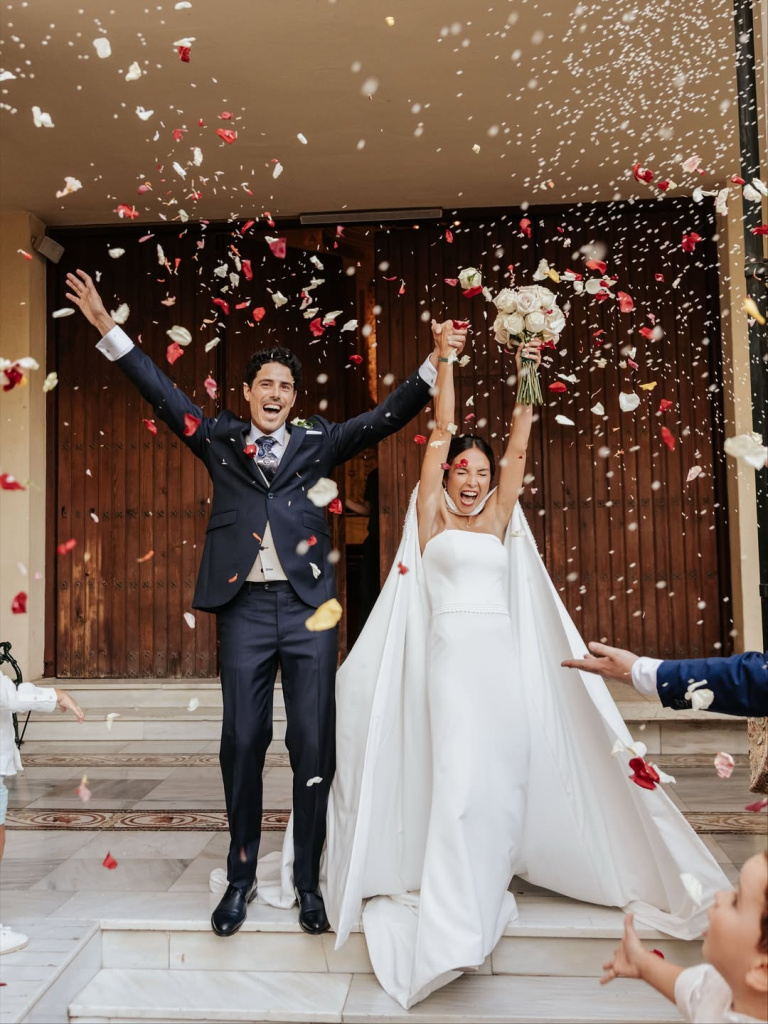
Spain offers a variety of breathtaking wedding locations, each with its unique personality and charm. Whether you're seeking a vibrant city wedding or a relaxed beachside celebration, there's a perfect place waiting just for you.
Barcelona: Urban Elegance Meets Coastal Charm
Barcelona blends stunning architecture, sandy beaches, and buzzing urban energy, making it an unforgettable choice for your Barcelona wedding. You can host your ceremony overlooking the Mediterranean, celebrate on chic rooftop terraces, or dive into history within the charming Gothic Quarter. You and your guests will fall head over heels for Barcelona’s enchanting vibe.
Seville: Romantic Andalusian Flair
If you're dreaming of romance, Seville’s enchanting Moorish palaces, lush gardens, and quaint cobblestone streets are the perfect backdrop. Imagine saying your vows in a beautifully restored Andalusian mansion or celebrating in a picturesque garden. Seville promises an unforgettable wedding infused with authentic southern Spanish charm.
Mallorca: Mediterranean Paradise
Mallorca, the crown jewel of the Balearic Islands, is pure paradise. With crystal-clear waters, white-sand beaches, and dreamy countryside, you'll easily find the ideal Mallorca wedding venues by the sea. Whether you're envisioning a luxurious beachfront villa or a rustic finca tucked into olive groves, your Mallorca wedding will combine style and relaxation perfectly.
Madrid: Sophisticated City Glamour
If you're drawn to modern elegance, Madrid has everything you need. Picture exchanging vows in elegant hotels, celebrating in historic palaces, or partying with city skyline views from chic rooftops. Madrid offers the perfect blend of contemporary glamour and rich cultural history to make your wedding truly remarkable.
Ibiza: Boho-Chic Island Dream
An Ibiza wedding captures that carefree yet glamorous island vibe. Imagine a barefoot ceremony on golden beaches or celebrating in one of the luxurious Ibiza wedding villas, perched above breathtaking sea views. Ibiza’s laid-back charm is perfect if you're seeking a wedding filled with style and free-spirited energy.
Granada: Fairytale in the Shadow of Alhambra
Dreaming of a fairytale wedding? Granada, with its famous Alhambra palace, offers magical Moorish gardens, stunning Andalusian courtyards, and spectacular mountain views. You'll feel like you've stepped into a fairytale, making memories you'll treasure forever.
Marbella & Costa del Sol: Luxury by the Sea
For a glamorous seaside celebration, look no further than Marbella and the Costa del Sol. Luxury resorts, stylish beachfront villas, and elegant golf clubs await you. With endless sunshine and a touch of Mediterranean luxury, your wedding here will feel effortlessly chic and exclusive.
Valencia: Modern Style with Historic Soul
Valencia effortlessly combines historic charm with contemporary style. Celebrate your love amid striking architecture, lush parks, or golden beaches while savoring the city’s famous culinary delights. Valencia promises sunshine, style, and unforgettable moments.
San Sebastian: Culinary Heaven in Basque Country
Food-loving couples, rejoice! San Sebastian offers a world-class culinary experience, breathtaking coastal scenery, and lush landscapes. With its Michelin-starred restaurants and beautiful beaches, your wedding here will be deliciously unforgettable.
Canary Islands: Exotic Island Beauty
Looking for something a little different? The Canary Islands promise adventure and romance among volcanic landscapes, lush forests, and stunning beaches. Tenerife, Gran Canaria, or Lanzarote offer luxurious resorts and unique venues perfect for creating extraordinary memories.




Navigating the Legal Side of Your Spain Wedding
Before picturing yourself saying "I do" surrounded by breathtaking landscapes, charming towns, or the turquoise Mediterranean sea, let's pause just a moment. To ensure your fairytale Spanish wedding unfolds without a hitch, it’s essential to unravel the somewhat less romantic—but incredibly important—legal details involved.
First, Decide: Legal or Symbolic Ceremony?
The first step is deciding between a legal or symbolic wedding ceremony. While Spain does recognize civil and Catholic ceremonies legally, many international couples prefer a symbolic ceremony—tying the knot legally at home and celebrating their love in Spain with a personalized, meaningful event free of bureaucratic hurdles.
Essential Documents for a Civil Marriage
If you’ve set your heart on having a legally recognized civil wedding in Spain, here’s your friendly heads-up on the paperwork you'll need:
- Passports or IDs: Up-to-date passports or national IDs for both partners.
- Birth certificates: Official copies, Apostilled, and translated into Spanish.
- Single Status Certificates: Documents proving neither of you is already married (Certificate of No Impediment).
- Residency proof: Depending on your chosen location, you might need a local registration document (empadronamiento).
- Previous Marriages: If applicable, divorce decrees or death certificates, officially translated and Apostilled.
Keep in mind, any document from your home country must carry the Apostille stamp and translation into Spanish by an official sworn translator.
Saying "Sí" in a Religious Ceremony
Dreaming of an authentic Spanish church wedding? Good news if you're Catholic: Spain recognizes Catholic ceremonies as legally binding. You’ll need baptismal certificates, letters of permission from your home parish priest, and a few other religious documents. Pro tip: start your conversation with the Spanish church at least 6 months in advance.
Other religious ceremonies—like Protestant, Jewish, or Muslim—are beautiful yet symbolic in Spain, meaning you'll need a civil ceremony at home or locally to make your marriage official.
Timing is Everything
Spanish bureaucracy tends to move at its own leisurely pace. To avoid any last-minute panic, kick off the paperwork party at least 6 to 8 months before your wedding date. Trust us, early action here is your best friend.
Your Local Superhero: The Wedding Planner
The easiest way to navigate Spain’s legal maze? Teaming up with a local wedding planner or legal advisor who knows the ins and outs of the Spanish system. Think of them as your secret weapon—they'll handle all that tricky paperwork and appointments, leaving you more time to focus on cake tasting and playlist building.
Why Symbolic Ceremonies Are Trending
Honestly, most couples opt for a symbolic Spain wedding ceremony —it’s more flexible, relaxed, and stress-free. Marrying officially in your home country first gives you total freedom to design a personalized ceremony exactly as you dream it, without any bureaucratic restrictions. It’s the perfect balance: officially legal at home, perfectly romantic abroad.
Make it Official at Home Too
If your wedding in Spain is legally binding, don’t forget to register your marriage at your home country's embassy or consulate. This simple but essential step ensures your marriage is recognized globally, smoothing out future processes like name changes, visas, and property purchases.




How Much Does a Spain Wedding Really Cost?
On average, destination weddings in Spain typically range from €15,000 to €50,000, but costs can vary dramatically based on your choices. A cozy, intimate wedding with around 20-30 guests could start as low as €10,000 to €15,000, while larger celebrations in luxury venues can easily reach €100,000 or even higher.
Let’s explore where exactly your money will go, and how to prioritize spending to match your dream wedding.
Venue Costs in Spain
Your choice of venue significantly impacts your overall budget. Here’s a rough breakdown of what to expect:
- Historic Spain Wedding villas and Mansions: These picturesque venues are extremely popular. Rental costs typically range from €4,000 to €12,000+ for exclusive use. You’ll pay a premium for venues with historic charm, particularly in places like Barcelona, Seville, or Granada.
- Beachfront Hotels and Resorts: If you're dreaming of a luxurious seaside ceremony, venues along the Costa del Sol, Mallorca, or Ibiza usually start at around €5,000 and can rise above €15,000, depending on exclusivity and prestige.
- Rustic Country Estates (Fincas): Popular in Mallorca, Andalusia, and rural Catalonia, rustic fincas typically cost between €4,000 and €10,000, often with charming gardens and ample outdoor spaces perfect for romantic celebrations.
- City Hotels and Rooftops: Venues in cities like Madrid or Barcelona offer chic rooftop ceremonies starting at around €4,000, but upscale hotels with panoramic views can run upwards of €10,000.
Catering & Food Costs
Spanish weddings are famous for delicious, abundant food, so you’ll want to budget accordingly. Catering typically ranges between €100 and €200 per guest. This cost usually includes appetizers, main courses, desserts, drinks during dinner, and sometimes even wedding cake. For around 50 guests, expect catering alone to cost between €5,000 and €10,000.
Luxury menus or Michelin-starred catering, common in cities like San Sebastian, Valencia, or Barcelona, could push these costs above €250 per guest.
Drinks and Bar Services
Your wedding celebration wouldn’t feel complete without a proper toast! Bar packages typically cost from €20 to €60 per guest, depending on whether you choose standard beverages or premium selections. An open bar might add an additional €2,000 to €5,000 to your overall budget.
Photography & Videography Costs
Preserving memories of your special day is priceless. Professional wedding photographers in Spain typically charge between €2,000 and €9,000, depending on their style, reputation, and the length of coverage. Spain wedding videographers often charge similar rates, meaning total photography and video expenses could easily reach around €4,000 to €18,000 combined.
Flowers & Decorations
Beautiful Spain wedding flowers, decor, and elegant details make your wedding visually unforgettable. Typical floral and decoration costs in Spain are €6,000 on average. You can keep it simpler for smaller celebrations or splurge on elaborate flower arrangements, lighting, and custom decor for larger events or luxury venues.
Entertainment and Music
Entertainment transforms your wedding celebration into an unforgettable party. Costs for DJs in Spain typically range from €600 to €2,500, while live bands start at around €1,500 and can exceed €4,000. Flamenco dancers or specialty performers (popular in cities like Seville or Granada) typically range from €500 to €2,000, adding an authentic Spanish touch to your wedding.
Wedding Planner Fees
Working with a wedding planner is strongly recommended when marrying abroad, as they can ease your stress dramatically. Full-service wedding planners in Spain typically charge between €7,000 and €24,000. This investment can actually save you money, time, and stress by negotiating with vendors and managing logistics smoothly.
Accommodation & Transportation
Many couples choose to cover accommodation for immediate family or close friends. Prices can vary greatly, but on average, expect to pay €150 to €400 per night for good-quality hotels or villas. Transportation services, such as shuttles or private coaches for guests, typically cost around €500 to €2,500 depending on guest numbers and distances.
Additional Costs to Consider
Don't forget smaller yet significant expenses, such as:
- Wedding cake: €300–€1,000
- Bridal beauty (hair & makeup): €300–€800
- Ceremony officiant (symbolic): €300–€600
- Invitations and stationery: €200–€1,000
- Wedding favors: €2–€10 per guest
Ways to Save on Your Spanish Wedding
If you’re looking for budget-friendly ideas, consider:
- Choosing off-peak wedding dates (April, May, September, October) to save significantly on venues and accommodations.
- Having your wedding mid-week rather than on weekends.
- Opting for locally sourced seasonal food to keep catering affordable.
- Prioritizing what's most important to you, and saving on areas less critical to your vision.




Spain Wedding Packages: What’s Included and How to Choose the Best One for You
Choosing a wedding package can significantly simplify your planning, allowing you more time to enjoy the excitement of your upcoming celebration. Spanish wedding venues and planners typically offer a variety of packages designed to suit different tastes, budgets, and needs. Understanding what’s included and how each package differs can help you confidently select the one that fits your vision best.
What's Usually Included in a Spain Wedding Package?
Most basic wedding packages in Spain will include essential elements like venue rental, ceremony setup, and basic coordination. Typically, you'll also find catering options with pre-set menus, drinks packages, and simple floral decoration or table settings. Photography coverage for a set number of hours, ceremony officiant services, and sometimes a DJ or Spain wedding music option might also be included.
Mid-range wedding packages often add extra layers of convenience and luxury, such as extended venue hours, enhanced floral arrangements, premium catering with upgraded menus and drinks, professional photography and videography services for extended coverage, and possibly accommodation arrangements for the couple or guests.
Luxury wedding packages go even further, offering exclusive venue access, customized gourmet catering, full-service wedding coordination, detailed décor and styling, extensive entertainment options including live bands or specialized performers, premium photography and videography, luxury transportation, and additional extras like spa treatments or personalized guest favors.
How to Choose the Best Wedding Package for You
When choosing a wedding package in Spain, first reflect on what matters most to you and your partner. Think about your overall vision—whether it’s an intimate ceremony or an elaborate celebration. Decide what you absolutely need versus what would simply be nice to have. If you're seeking simplicity and convenience, basic or mid-range packages may be ideal, giving you essential services without overwhelming your budget.
However, if personalization, luxury, and unique touches are central to your dream, consider investing in a premium or custom package. Luxury packages often include the services of an experienced wedding planner who can cater specifically to your tastes, coordinate complex logistics seamlessly, and incorporate distinctive, personalized elements.
Also, carefully review what's not included in your chosen package. Elements such as wedding cake, transportation, guest accommodations, and detailed decor are sometimes considered extras. Knowing exactly what's covered will help you accurately plan your total wedding budget.
Lastly, communicate openly with your venue or planner. Many providers are willing to adapt packages to better align with your wishes. Feel comfortable asking questions and negotiating details, ensuring the package you select feels like the perfect fit for your wedding day in Spain.




Choosing the Right Spain Wedding Planner
The perfect planner not only simplifies the entire wedding process but also ensures that every detail of your dream celebration becomes a reality. Since planning a wedding abroad can come with unique challenges—like navigating local customs, language barriers, and unfamiliar venues—having an experienced professional by your side can make all the difference.
Experience with Destination Weddings in Spain
When researching planners, prioritize those who specialize in destination weddings, particularly within Spain. A planner experienced with international couples will know exactly how to manage unique challenges like handling paperwork, coordinating travel logistics, and communicating with vendors in both English and Spanish. They’ll also have insights into local customs, helping you blend your personal preferences seamlessly with authentic Spanish touches.
Local Connections and Knowledge
A great wedding planner in Spain should have strong local connections and extensive knowledge of different regions, venues, and vendors. Look for planners who have built trusted relationships with venues, caterers, photographers, musicians, and other wedding professionals. These connections often mean better service, preferred pricing, and smoother coordination for you.
Communication and Language Skills
Clear communication is essential, especially when planning from abroad. Choose a wedding planner who speaks fluent English and Spanish, enabling them to liaise smoothly with both you and local vendors. Being able to clearly convey your vision without misunderstandings is key to creating your ideal wedding day.
Portfolio and Style
Browse through planners' portfolios to find someone whose style aligns closely with your own vision. If you dream of a luxurious seaside celebration, find someone experienced in elegant coastal weddings. If you're imagining a rustic vineyard wedding in Mallorca or a chic city wedding in Barcelona, choose planners who have a demonstrated track record in these types of events. Their previous work should inspire confidence and excitement about your own special day.
Reviews and References
Never underestimate the importance of real reviews and testimonials. Ask potential planners to provide references or read reviews from other couples who've used their services. Pay attention to comments about professionalism, responsiveness, organization, creativity, and their ability to handle unforeseen challenges gracefully.
Flexibility and Personalization
Your planner should be enthusiastic about bringing your unique vision to life. Choose someone who listens carefully, asks thoughtful questions, and offers creative suggestions tailored specifically to your preferences. The best planners remain flexible and adaptable, ensuring every detail—from décor and entertainment to catering and traditions—reflects you and your partner’s personalities and desires.
Transparent Pricing and Budget Management
Weddings abroad can quickly escalate in cost without careful management. Your planner should clearly outline their pricing structure and explain exactly what’s included. A professional, trustworthy planner will also respect your budget, negotiating thoughtfully with vendors, providing realistic advice, and avoiding unexpected hidden costs.
Problem-Solving and Calm Under Pressure
Destination weddings sometimes involve last-minute challenges. Your ideal wedding planner should demonstrate strong problem-solving skills, remaining calm and organized even in stressful situations. Their ability to quickly manage unexpected issues—from sudden weather changes to vendor delays—ensures you stay stress-free and confident in your celebration.
Availability and Attention
Finally, ensure your planner can provide the attention and availability you deserve. Discuss their current workload, team size, and availability leading up to your big day. You want to feel like a priority, with ample communication throughout the planning process, and dedicated attention during your wedding weekend.




Selecting the Perfect Spain Wedding Venues
With countless gorgeous spots across the country, it's easy to get overwhelmed (in the best possible way!). But don't worry—here’s exactly how you can choose a spectacular venue that reflects your style, fits your needs, and sets the perfect stage for your special day.
First, Envision Your Dream Wedding Style
Before you start venue shopping, picture your dream wedding clearly. Close your eyes and imagine yourself exchanging vows: Do you hear ocean waves crashing in Ibiza, see lush gardens in Mallorca, feel the romantic charm of a historic Andalusian villa, or sense the elegance of a chic rooftop terrace in bustling Barcelona? Defining your style early makes choosing a venue much easier.
Pro Tip: Make a Pinterest board or collect inspiring photos to clearly visualize your ideal Spanish wedding venue. This helps tremendously when discussing options with planners or venues later.
Consider Your Guest List and Venue Size
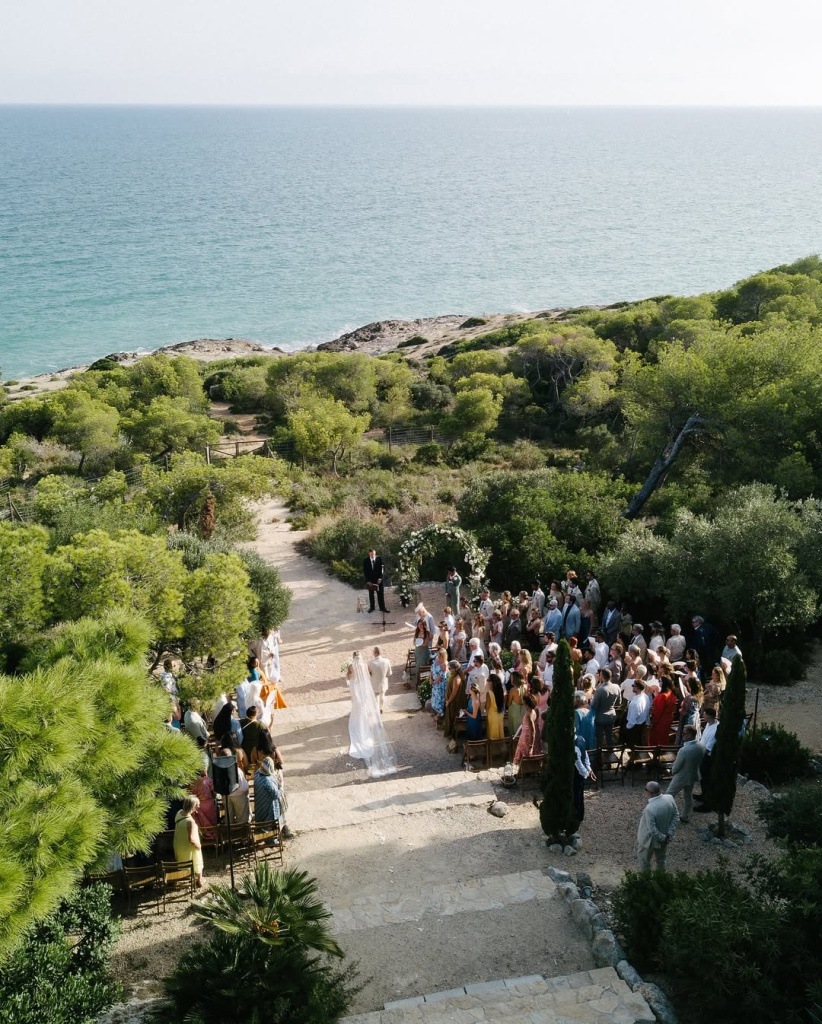
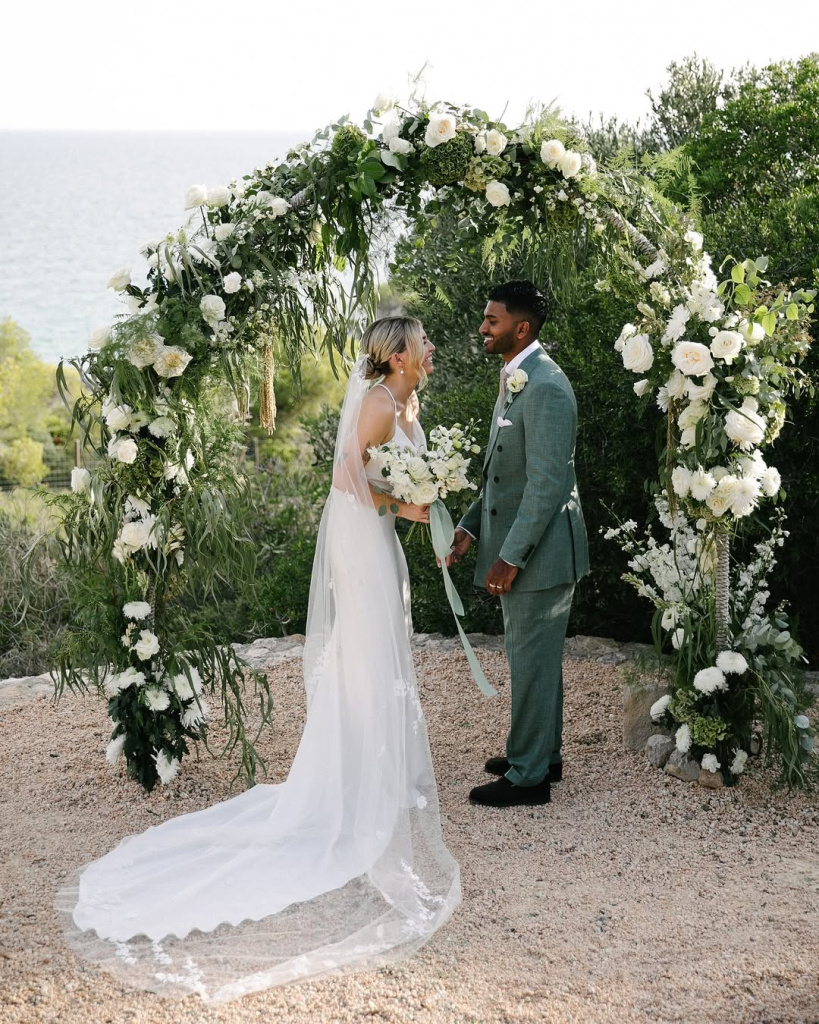
Next, take a realistic look at your guest list. Knowing exactly how many guests you expect can instantly narrow down your choices. Larger celebrations work beautifully at sprawling countryside estates, luxurious resorts, or spacious beachfront hotels. For intimate ceremonies, consider cozy rustic fincas, boutique hotels, or charming city rooftops.
Tip: Always choose a venue slightly larger than you think you'll need. Extra space means guests can mingle comfortably and gives you more flexibility with decorations and seating arrangements.
Think About Travel Convenience
You want your guests to enjoy the experience fully, right? So consider ease of access. Venues near international airports (like Barcelona, Madrid, Malaga, or Palma de Mallorca) significantly simplify travel logistics, saving your guests from complicated transfers and extra stress.
Explore Venue Flexibility & Restrictions
When talking with venues, be upfront about your vision. Some venues have strict curfews, noise restrictions, or limitations on outside vendors and décor. Ask these questions clearly early on, so you're not surprised later.
Check Out the Venue in Person (or Virtually)
Photos are great—but nothing beats visiting your potential venues in person to feel the atmosphere firsthand. If travel isn’t feasible right away, request a detailed virtual tour. Pay attention to the layout, natural lighting, and how easily your event could flow from ceremony to cocktails and dinner.
Tip: Always ask for a walkthrough video showing the venue at the same time of year and day as your wedding. It gives you a realistic sense of lighting, weather, and ambiance.
Evaluate In-House Services & Amenities
Some venues in Spain offer all-inclusive packages, including catering, décor, planning, and accommodations, which can streamline your planning significantly. Others are simply stunning blank canvases where you’ll arrange everything independently. Choose the option that aligns with your desired level of involvement.
Advice: Consider venues that offer at least a partial package (like in-house catering or basic décor). This helps reduce stress and often results in better pricing overall.
Pay Attention to Spain’s Seasons and Climate
Spain is known for sunny weather, but regional climates vary. Southern regions like Andalusia can get very hot in July or August, while coastal spots like Mallorca or Costa del Sol offer milder temperatures and refreshing sea breezes. Spring and autumn weddings typically offer the most comfortable temperatures.




How to Choose the Best Spain Wedding Photographer and Videographer
When your dream wedding is over, your Spain wedding photos and videos will be the most treasured reminders of your incredible day. Because of this, choosing your wedding photographer and videographer deserves special attention.
Explore Their Style and Portfolio Carefully
Every photographer and videographer has a unique style—ranging from romantic, airy, and fine-art approaches, to vibrant, energetic, and documentary styles. Spend time browsing portfolios carefully, imagining your own wedding day reflected through their lens. Do their photos and films make you smile, feel emotional, or excited? If yes, you’re probably onto something great.
Find Professionals Who Specialize in Destination Weddings
Destination weddings, especially in Spain, have unique dynamics. Photographers and videographers experienced in working with international couples often understand logistics better and are skilled at capturing the essence of Spain’s stunning locations. They’ll likely have valuable local insights, know the most photogenic spots, and navigate language barriers effortlessly.
Look for Personal Connection and Comfort
Since your photographer and videographer will be by your side throughout your entire wedding day, comfort and connection with them matter greatly. Set up a video call, phone call, or an in-person meeting (if possible) before booking. Pay attention to their energy, friendliness, communication style, and enthusiasm about your wedding.
Insider Tip: Trust your gut feeling—if the conversation feels natural and enjoyable, it's a great sign. Feeling comfortable with them ensures genuine, relaxed, and joyful images and videos.
Read Reviews and Testimonials Carefully
Always check past reviews from couples who've used their services. Look for consistent positive comments about professionalism, punctuality, communication, creativity, and how they handle unexpected issues (like changing weather or timeline shifts). Testimonials provide real-world feedback that can confirm your instincts.
Tip: Reach out to one or two previous couples directly (many will happily respond via social media or email) to get honest, firsthand experiences.
Clarify Exactly What’s Included
Make sure you clearly understand what’s included in the photography and videography packages. Ask specifically about hours of coverage, the number of edited photos or length of the edited film, turnaround time, travel costs, and whether you'll receive digital files or printed albums.
Valuable Advice: Request package details in writing and ensure there are no hidden costs, such as extra hours, editing fees, or travel expenses. Transparency from the beginning avoids unwelcome surprises later.
Budget Wisely, but Don’t Cut Corners
Photography and videography often take a significant portion of your budget—and for good reason. These images and films will preserve memories long after your wedding day ends. Choose wisely, even if it means adjusting other aspects of your wedding budget.
Friendly Tip: If budget is tight, prioritize fewer hours with an exceptional photographer or videographer over extensive coverage with a less-skilled professional. Quality always outshines quantity.
Discuss Back-Up Plans and Insurance
Unexpected events happen, especially when you're planning from afar. Professional photographers and videographers will have back-up equipment, contingency plans in case of illness, and proper insurance coverage. Don’t hesitate to ask these questions early in your discussions.
Book Early—Top Professionals Fill Fast
Spain is incredibly popular for weddings, so highly rated photographers and videographers book up quickly, especially during the peak wedding months (May–October). Aim to secure your chosen professionals at least 8–12 months in advance.




Spain Wedding Destinations: Most Photogenic Places
From dramatic coastal vistas and charming historic towns to lush vineyards and romantic castles, Spain truly offers something for every couple dreaming of picture-perfect memories. To help you find the most photogenic places for your Spanish wedding, here’s a handpicked list of spectacular locations guaranteed to leave you—and your wedding album—looking simply stunning:
- Park Güell (Barcelona) – Colorful mosaic masterpieces by Gaudí set against panoramic city views.
- The Alhambra Palace (Granada) – Romantic Moorish architecture with enchanting gardens and fountains.
- Real Alcázar (Seville) – Magical royal gardens and exquisite courtyards perfect for romantic portraits.
- Cap de Formentor (Mallorca) – Dramatic cliffs and breathtaking ocean views.
- La Concha Beach (San Sebastián) – Elegant bay with stunning coastal scenery ideal for beach weddings.
- Ronda (Andalusia) – Dramatic cliff-top town featuring the iconic Puente Nuevo bridge.
- Dalt Vila (Ibiza) – Charming cobblestone streets, whitewashed buildings, and panoramic sea views.
- Royal Palace of Madrid (Madrid) – Grand architecture and regal gardens ideal for sophisticated weddings.
- Cala Comte Beach (Ibiza) – Turquoise waters, stunning sunsets, and romantic seaside vibes.
- Montserrat Mountains (Catalonia) – Unique rock formations and picturesque monasteries overlooking breathtaking vistas.
- Plaza de España (Seville) – Iconic, vibrant plaza with bridges, fountains, and spectacular tilework.
- Toledo (Castilla-La Mancha) – Ancient city offering timeless charm, medieval architecture, and stunning views.
- Sitges Beaches (Near Barcelona) – Chic coastal town famous for beautiful beaches and romantic seafront promenades.
- Jardines de Sabatini (Madrid) – Elegant gardens featuring classic fountains and pristine landscaping near the Royal Palace.
- Catedral de Mallorca (Palma) – Gothic masterpiece overlooking the Mediterranean Sea, especially photogenic at sunset.
- Cudillero (Asturias) – Colorful fishing village nestled dramatically between cliffs and sea.
- Mijas Pueblo (Costa del Sol) – Picturesque whitewashed Andalusian village overlooking the Mediterranean coastline.
- Cala d'Hort (Ibiza) – Incredible views of the mystical island of Es Vedrà, especially at sunset.
- Segovia Aqueduct (Segovia) – Majestic Roman aqueduct providing historic charm and grand photo opportunities.
- Bardenas Reales (Navarra) – Unique desert-like landscapes with surreal beauty, ideal for adventurous couples.
- Girona Old Town (Catalonia) – Romantic medieval streets, colorful houses, and dramatic riverside views.
- Cala Macarella (Menorca) – Crystal-clear turquoise waters and white sandy coves perfect for beach portraits.
- Altea Old Town (Costa Blanca) – Traditional Mediterranean charm with white buildings, blue-domed churches, and sea vistas.
- Castell de Tamarit (Tarragona) – Fairytale-like seaside castle overlooking golden beaches.
- San Juan de Gaztelugatxe (Basque Country) – Stunning rocky island connected by a dramatic staircase, famously featured in "Game of Thrones.”
- Playa de las Catedrales (Galicia) – Unique beach featuring breathtaking natural stone arches.
- Vejer de la Frontera (Andalusia) – Hilltop white village with sweeping countryside views and picturesque streets.
- Plaza Mayor (Madrid) – Iconic central plaza, perfect for capturing the energy and elegance of Spain’s capital city.
- Caminito del Rey (Malaga) – Dramatic cliffside walkways offering unforgettable views and adventurous photo ops.
- Cadaqués (Costa Brava) – Dreamy coastal town known for whitewashed houses and romantic seaside charm.




Delicious Spain Wedding Food Ideas That Will Wow Your Guests
Let’s be honest—one of the absolute highlights of any wedding is the food, especially when your celebration takes place in a culinary paradise like Spain. With an abundance of fresh ingredients, bold flavors, and mouth-watering dishes, Spanish cuisine offers endless possibilities to delight your guests.
- Interactive Tapas Stations: Allow guests to build their own plates with classics like patatas bravas, jamón ibérico, croquetas, and garlic shrimp.
- Traditional Paella: Offer authentic seafood or mixed paella prepared in giant pans right in front of your guests—a showstopper and delicious centerpiece.
- Spanish Charcuterie Boards: Delight guests with beautifully arranged platters of local cured meats, cheeses, marinated olives, almonds, and fresh figs.
- Gazpacho Shooters: Serve refreshing cold tomato gazpacho or melon-based gazpacho in stylish mini glasses—a perfect starter during warm Spanish evenings.
- Seafood Grill (Parrillada de Marisco): Create a luxurious seafood experience featuring grilled prawns, squid, scallops, and fresh local fish.
- Chorizo & Manchego Croquetas: Delicious, crispy bites filled with spicy chorizo and creamy Manchego cheese—a guaranteed crowd favorite.
- Spanish Omelette Bites (Tortilla Española): Small, elegant portions of potato and onion omelette served with aioli or fresh salsa.
- Jamón Ibérico Carving Station: Hire a professional cortador to slice Spain’s famous cured ham, creating an interactive, upscale experience for guests.
- Pintxos (Basque Country Tapas): Elegant, bite-sized treats like smoked salmon with dill, shrimp skewers, or goat cheese with caramelized onions served on toasted bread.
- Grilled Iberian Pork (Secreto Ibérico): Premium pork tenderloin grilled to perfection, served with rosemary potatoes or grilled vegetables.
- Spanish Cheese Tasting: An elegantly arranged cheese table featuring Manchego, Cabrales, Mahón, and Tetilla cheeses paired with local honey, nuts, and artisan bread.
- Fideuà: A seafood dish similar to paella but featuring short noodles instead of rice, giving your guests an authentic coastal Spanish experience.
- Pulpo a la Gallega: Tender Galician-style octopus served with paprika, olive oil, and sea salt—a sophisticated and traditional appetizer.
- Gourmet Montaditos: Mini sandwiches with fillings like Iberian ham with tomato, grilled vegetables with goat cheese, or smoked salmon and avocado.
- Albóndigas (Spanish Meatballs): Classic meatballs in a savory tomato or almond sauce, perfect for bite-sized comfort food.
- Spanish-style Roast Lamb (Cordero Asado): Tender roasted lamb seasoned with garlic and rosemary, a show-stopping main course perfect for rustic celebrations.
- Gambas al Ajillo: Classic Spanish garlic shrimp sautéed with olive oil, chili flakes, and fresh parsley—a vibrant and aromatic favorite.
- Mini Empanadas: Flaky pastries stuffed with flavorful fillings like tuna, chicken, beef, or spinach and cheese.
- Vegetarian Paella: Delight vegetarian guests with hearty saffron-infused rice loaded with fresh seasonal vegetables and mushrooms.
- Crema Catalana: Spain’s classic dessert featuring silky custard with caramelized sugar topping, served in elegant glass ramekins.
- Churros with Chocolate: Offer crispy fried churros alongside rich, melted dark chocolate for a late-night snack or dessert bar.
- Tarta de Santiago: Traditional almond cake dusted with powdered sugar, ideal for elegant dessert tables.
- Sangria and Cava Stations: Delight guests with customizable drink bars featuring fruity sangrias or sparkling cava cocktails.
- Helado Artisanal Ice Cream Cart: A charming, interactive dessert option serving handcrafted ice creams inspired by Spanish flavors like lemon-basil, almond, fig, or saffron.




Unique Spain Wedding Decor Ideas
Spain’s wedding culture, rich heritage, and sun-soaked landscapes offer an endless source of inspiration for wedding décor. Whether you're drawn to rustic countryside charm, coastal elegance, or Moorish romance, here are some uniquely Spanish décor ideas to help you infuse your celebration with personality and authenticity.
Andalusian Courtyard-Inspired Ceremony
Create an atmosphere inspired by the romantic patios of Seville or Córdoba. Think tiled backdrops, iron lanterns, lemon trees in terracotta pots, and hanging ivy. Add a small fountain or floral arch to bring that courtyard magic to life.
Spanish Tile Accents
Incorporate colorful, hand-painted ceramic tiles into your décor as escort cards, charger plates, table numbers, or even a tiled bar front. These iconic azulejos are instantly recognizable and add bold color, texture, and local flair.
Flamenco-Inspired Florals
Use dramatic red roses, carnations, ranunculus, or peonies arranged with olive branches, eucalyptus, or trailing greenery. Accent your arrangements with lace or fan-shaped details to channel the bold romance of Spanish flamenco culture.
Olive Branch & Herb Elements
Nothing says Spain quite like olive trees and fresh Mediterranean herbs. Decorate tables with olive branches, rosemary, thyme, and lavender for a look that feels both rustic and refined. You can even weave them into napkin rings or chair backs.
Lace & Mantilla Touches
Spanish lace is timeless and elegant. Use lace table runners, embroidered linens, or even incorporate mantilla-inspired veils into your ceremony backdrop or sweetheart table design. It adds a delicate, romantic texture that nods to Spanish tradition.
Spanish Fans as Decor and Favors
Place hand-painted or lace fans at each guest’s seat—they can double as favors and keep guests cool during sunny outdoor ceremonies. You can also hang fans as a decorative feature behind the altar or on reception walls.
Rustic Finca Aesthetic
If you're celebrating in the countryside or on an island like Mallorca, embrace the charm of a traditional finca. Decorate with raw wooden tables, woven textiles, clay pottery, and vintage lanterns. Accent with wildflowers and lemons for a fresh, authentic feel.
Moorish Archways and Patterns
Use intricate geometric patterns and arches as inspiration for your altar, seating charts, or custom dance floor designs. This Moorish influence is especially striking in southern Spain and brings a regal yet artistic vibe to any space.
Hanging Floral Installations
Bring the drama with lush floral installations suspended above tables or the dance floor. Use Mediterranean greenery, bright bougainvillea, and cascading vines for a bold look inspired by Spanish garden courtyards.
Candelabras and Lanterns
For an evening celebration, opt for wrought iron candelabras or Moroccan-inspired lanterns to create a warm, romantic glow. These elements reflect both Spanish and North African design influences common throughout southern Spain.
Colorful Ceramics and Pottery
Use authentic Spanish ceramics to display florals, hold cutlery, or serve as table centerpieces. The pops of blue, yellow, green, and red will energize your décor and highlight local craftsmanship.





Elegant & Effortless Spain Wedding Attire
From breezy beach looks to elegant ensembles inspired by Spanish tradition, there are plenty of stylish and meaningful ways to approach your wedding attire.
For the Bride: Light, Elegant & Locally Inspired
Spain’s warm climate calls for fabrics that are light, breathable, and effortless. Think silk, chiffon, lace, or crepe—materials that move beautifully and won’t weigh you down.
Popular Styles:
- Boho-Inspired Gowns: Perfect for beach or countryside weddings. Look for flowing silhouettes, delicate embroidery, and floral appliqués.
- Spanish Lace Dresses: Inspired by the traditional mantilla, these gowns are ultra-romantic, often featuring illusion necklines or sleeves.
- Off-the-Shoulder Styles: A subtle nod to flamenco fashion, this neckline looks stunning in outdoor or coastal settings.
- Modern Minimalism: Sleek, tailored dresses with clean lines are ideal for elegant rooftop or city weddings in Madrid or Barcelona.
Style Tip: Consider changing into a second dress for the reception, especially if your ceremony dress is long or heavy. A lighter option lets you dance the night away with ease.
For the Groom: Dapper Meets Destination
Grooms have the freedom to adapt their attire to the setting, whether it’s beachy and relaxed or formal and classic.
Popular Options:
- Linen or Lightweight Suits: In beige, light grey, or soft blue—perfect for warm weather and outdoor ceremonies.
- Classic Tuxedos: Ideal for formal evening weddings or city venues, especially in Madrid or Seville.
- Traditional Spanish Touches: A modern take on the traje corto (short jacket and high-waisted trousers) for a stylish, culturally inspired look.
Style Tip: Skip the heavy three-piece suit in the summer months. Instead, opt for unlined jackets and breathable materials like cotton or linen to stay cool and polished.
For Guests: Dress the Climate, Respect the Culture
Spanish weddings are often stylish affairs, and guests are expected to dress well—but also smartly for the weather and venue.
Tips for Guests:
- Women: Flowing dresses, elegant jumpsuits, and bold prints are welcome. Avoid white or ivory, of course.
- Men: Lightweight suits or tailored trousers with a dress shirt work well. Ties are optional for casual weddings but encouraged for formal ones.
Weather Tip: Bring a light wrap or jacket for evening events—especially in spring or autumn when temperatures can dip after sunset.
Accessories That Add Local Flavor
Whether you’re the bride or a guest, you can infuse a bit of Spanish charm into your look with thoughtful accessories.
- Mantilla Veils: A beautiful and traditional touch, perfect for church weddings or romantic settings.
- Floral Hairpieces: Think fresh blooms or combs inspired by flamenco dancers.
- Espadrilles or Block Heels: Comfortable, chic, and ideal for navigating cobblestones or dancing on grass.
- Statement Fans: Decorative hand fans not only look stylish but also help beat the heat during summer ceremonies.
Embrace Local Designers
Spain is home to some world-renowned bridal fashion houses, including Pronovias, Rosa Clará, and YolanCris. If you’re planning ahead, consider trying on or even purchasing your gown or suit in Spain. You might find something truly unique while supporting local craftsmanship.
Cultural Considerations
While Spain is generally relaxed and modern, it’s respectful to consider your ceremony setting. If you’re marrying in a church, brides and guests may be expected to cover their shoulders during the ceremony. A lace shawl or light scarf is a stylish solution.




The Ultimate Guide to Spanish Wedding Entertainment
When it comes to weddings in Spain, the celebration doesn’t end with the ceremony—it’s just getting started. Spanish weddings are known for their vibrant energy, joyful atmosphere, and love of music, dancing, and heartfelt traditions.
Here’s everything you need to know to choose the perfect entertainment for your Spanish wedding.
Flamenco: The Heartbeat of Spanish Culture
Nothing says Spain like flamenco. This passionate and powerful art form—born in Andalusia—is a captivating blend of singing, guitar, and dance. Including a live flamenco performance in your wedding adds drama, authenticity, and a cultural experience your guests will never forget.
How to incorporate it:
- A flamenco trio or full troupe during cocktail hour or dinner
- A surprise performance to open the dance floor
- A solo flamenco guitarist for a romantic ceremony soundtrack
Tip: Hire local performers from regions like Seville or Granada to get the most authentic experience.
Spanish Guitar: Romance in Every Note
The soulful sounds of classical Spanish guitar set a beautifully romantic tone. Whether played during your ceremony, cocktail hour, or even dinner, it’s the kind of background music that makes the whole atmosphere feel warm, elegant, and distinctly Spanish.
Live Bands: From Spanish Hits to International Favorites
Live bands in Spain are incredibly versatile—many can perform both Spanish classics and international pop, rock, or jazz. Want your first dance to be a romantic ballad in Spanish, followed by a crowd-pleasing dance party? A great live band can do it all.
DJs That Know How to Keep the Party Going
If you're planning a high-energy dance party, a professional DJ is a must. Spanish wedding DJs know how to mix international hits with local favorites, keeping the dance floor packed well into the early hours. In fact, it's common for weddings in Spain to go on until 3 or 4 AM—or even sunrise!
Traditional Spanish Performers
If you're looking to infuse even more culture into your celebration, consider other traditional acts:
- Tuna Bands: Groups of university musicians dressed in traditional costumes who sing romantic songs and serenade guests
- Castellers (Human Towers): A breathtaking tradition from Catalonia, though more common at festivals than weddings
- Bagpipers: In northern regions like Galicia or Asturias, traditional music includes the gaita (Galician bagpipes), adding a unique regional flair
Entertainment for Cocktail Hour
While guests sip cava and nibble on tapas, why not entertain them with something special?
- Acoustic Duos playing soft Spanish love songs
- Magicians or illusionists for an unexpected twist
- Caricature Artists drawing guests live as fun keepsakes
- Interactive Flamenco Workshops where guests can learn a few dance moves!
Kids’ Entertainment
If you’re inviting families, don’t forget the little ones. Consider hiring a local entertainer, face painter, or supervised kids’ zone so parents can relax while kids are entertained.
Where to Stay: The Best Accommodation Options for Your Spain Wedding
You want to be comfortable, close to the celebration, and ideally, surrounded by your closest friends and family. Here’s how to choose the right accommodation for your Spanish wedding, along with some of the best options available across the country.
Match Your Accommodation to Your Wedding Style and Guest Experience
Start by considering the style of your wedding. A rustic countryside wedding in Mallorca might call for a traditional finca or villa surrounded by olive trees, while a glamorous city celebration in Madrid or Barcelona pairs beautifully with a five-star hotel or sleek design-forward boutique.
If you're hosting a multi-day wedding or inviting many guests from abroad, it’s a great idea to book a venue that offers on-site accommodation or find nearby lodging options that cater to a variety of budgets. This not only makes logistics easier but also helps create a more immersive, relaxed atmosphere.
Best Types of Accommodations for Spanish Weddings
In Spain, you’re spoiled for choice when it comes to where you and your guests can stay. The right accommodation can reflect the tone of your wedding, provide comfort and convenience, and even double as your venue.
Luxury Hotels and Resorts
Spain is home to some of Europe’s finest hotels and beachside resorts. These properties typically offer beautiful event spaces, full-service amenities (think pools, spas, and fine dining), and experienced staff who are used to working with weddings and international guests.
They are especially ideal if you're hosting your ceremony and reception at the hotel itself, or if you want your guests to stay close together in comfort.
Top picks:
- Hotel Alfonso XIII, Seville
- Mandarin Oriental, Barcelona
- Marbella Club Hotel, Costa del Sol
Private Villas and Fincas
If you’re looking for something more intimate or unique, renting a villa or finca (traditional countryside estate) is a wonderful option. These properties often have multiple bedrooms, large outdoor areas, private pools, and rustic charm—perfect for hosting wedding events and spending quality time with your loved ones over several days.
Fincas are especially popular in regions like Mallorca, Ibiza, Andalusia, and Catalonia.
What to keep in mind: Many villas and fincas are self-catered, so you may need to arrange your own housekeeping, transportation, or event services separately.
Boutique Hotels and Country Inns
Boutique hotels provide personalized service and a cozy atmosphere. Many are located in restored historic buildings or scenic countryside locations, offering character and charm that you won’t find in big-name hotels.
These are ideal if you're hosting a small-to-medium wedding, especially in regions with strong local character like Granada, Rioja, or Girona.
Coastal Retreats and Beachfront Apartments
Spain's beach destinations—like the Costa Brava, Costa del Sol, Mallorca, and the Canary Islands—are perfect for relaxed, sun-soaked celebrations. You’ll find a variety of beachside hotels, boutique resorts, and modern apartments just steps from the sea.
These are excellent options if you're planning a wedding with a holiday feel, where guests can enjoy the beach, water activities, and scenic walks between wedding events.
Guest Houses, Airbnbs, and Vacation Rentals
For weddings with guests coming from abroad, consider recommending or booking nearby Airbnbs or local casas rurales (rural guest houses). These give guests more freedom, privacy, and flexibility, often at a more budget-friendly price point.
Tips for Managing Wedding Accommodations
Here are some valuable tips to help you manage wedding accommodations smoothly and ensure your guests feel welcomed and well taken care of.
- Book Early: Spain is a popular destination, especially during peak wedding season (May to October). Secure your accommodation 8–12 months in advance to ensure availability—especially if you need group bookings or exclusive-use properties.
- Reserve Room Blocks: If you’re booking hotel rooms for your guests, ask about room blocks or group discounts. Most hotels will reserve a number of rooms at a discounted rate and hold them for a specific time period.
- Communicate with Guests: Create a wedding website or info pack that outlines recommended hotels, travel tips, directions, and local highlights. This helps guests feel confident and cared for when planning their trip.
- Think About Transportation: If your ceremony and reception are at a venue away from guest accommodations, arrange shuttle service or provide clear transportation options. This is especially important for rural venues or those without public transit nearby.
- Plan for You as a Couple: Don’t forget your own accommodation needs! Book a bridal suite or honeymoon suite in a peaceful, luxurious setting—somewhere close to the action but separate enough that you can relax and enjoy a few quiet moments together.




Smooth Transportation Logistics for a Stress-Free Spain Wedding
Transportation is one of those behind-the-scenes details that can either run smoothly—or become a source of stress if overlooked. Whether your wedding takes place in a bustling city, a coastal town, or a rural estate, organizing guest transportation in advance is key to keeping everything on track. If your ceremony, reception, or accommodations are in different locations, consider hiring private shuttles or minibuses to make it easy (and safe) for guests to get around without worrying about unfamiliar roads, parking, or navigation.
Tip: Share clear, detailed information on transportation with your guests ahead of time—either through your wedding website or a printed itinerary. Include pick-up/drop-off times, maps, and local taxi or ride-share info. And for truly remote venues, always confirm accessibility with your vendors and consider renting a backup vehicle or driver for flexibility on the day.




Traditional Spain Wedding Favors
Spain has a rich culture of meaningful details and hospitality, and incorporating traditional Spanish wedding favors is a beautiful way to thank your guests and share a little piece of Spain with them. These ideas will leave a lasting impression:
- Mini Bottles of Spanish Olive Oil – A luxurious and authentic gift, especially when sourced from Andalusia or Catalonia.
- Locally Made Fans (Abanicos) – Beautiful, decorative, and practical during warm outdoor ceremonies.
- Mini Bottles of Spanish Wine or Cava – Choose wines from La Rioja or Cava from Catalonia for a regional touch.
- Sachets of Dried Lavender or Herbs – A fragrant, rustic nod to Spain’s countryside traditions.
- Ceramic Tiles or Coasters (Azulejos) – Hand-painted pieces that double as décor and keepsakes.
- Traditional Spanish Sweets – Think turrón (nougat), polvorones (almond cookies), or mantecados wrapped in pretty paper.
- Personalized Castanets – A fun and interactive gift with cultural flair.
- Esparto Grass Accessories – Small woven keychains or baskets made from traditional Spanish materials.
- Flamenco-Inspired Bracelets or Pins – Colorful keepsakes that celebrate Spain’s iconic dance style.
- Jar of Spanish Sea Salt or Spices – A flavorful souvenir guests can use at home.
- Mini Paella Kits – Include saffron, rice, and a recipe card for guests to try this beloved dish themselves.




Spain Wedding Adventure: Essential Pre & Post-Wedding Activities You’ll Love
With so much culture, nature, and charm at your doorstep, planning a few extra activities before or after the wedding gives your guests a chance to bond, explore, and truly enjoy everything Spain has to offer.
Host a Sunset Welcome Party
Kick off the wedding festivities with a relaxed evening gathering. Choose a scenic terrace, a beach bar, or a vineyard for cocktails at golden hour. Keep it simple—local wine, light bites, music—and let everyone ease into the celebration in style.
Explore the Local Markets
Spain’s markets are a feast for the senses. From the colorful stalls of Barcelona’s La Boqueria to the artisanal shops in Granada, organizing a casual market visit is a great way to introduce your guests to the country’s culture. It’s low-key, fun, and perfect for picking up authentic souvenirs.
Plan a Countryside Picnic
For a slower-paced moment between events, arrange a private picnic in a vineyard, olive grove, or national park. Include fresh bread, cheeses, fruit, and cava. It’s a peaceful way to recharge and soak in the scenery—especially lovely for smaller groups.
Arrange a Group Bike Ride or Hike
Spain’s landscapes are incredibly diverse. Offer guests an optional outdoor activity like a scenic bike tour in the Catalan countryside, a coastal walk in Mallorca, or a short hike to a historic site like Ronda or Montserrat. It’s a great way to balance out the indulgences of the wedding weekend.
Organize a Casual Farewell Brunch
After the big day, treat your guests to a relaxed farewell brunch. Think fresh pastries, local fruits, Spanish coffee, and maybe a cheeky mimosa or two. It’s the perfect way to share stories, laugh about the night before, and say your goodbyes in a calm, cozy setting.
Historic City Tours
Offer your guests a guided walking tour through the streets of your wedding destination. Whether it's the Alhambra in Granada, the Gothic Quarter in Barcelona, or the Alcázar in Seville, these beautiful landmarks add depth and meaning to the trip.
Spa Day or Wellness Morning
Treat yourselves and your bridal party to a calming spa session or group yoga class. It’s the perfect way to recharge, especially after travel or a late night of dancing.
Traditional Spanish Cooking Class
Let your guests get hands-on with local cuisine. Cooking classes (like learning to make authentic paella or Spanish tortilla) are both interactive and delicious—and they make for a great bonding experience.
Planning Tip: Choose just 2–3 standout activities to include in your itinerary—enough to engage guests without overwhelming them. Balance energetic outings with downtime, and make sure activities are accessible and optional so everyone can enjoy the experience at their own pace.




Must-Have Packing Essentials for a Spain Wedding
With the country’s sunny climate, diverse landscapes, and festive culture, you’ll want to be prepared for everything from glamorous celebrations to relaxed sightseeing days. Here’s your complete, no-stress packing checklist to help you arrive in Spain ready for every moment of your wedding adventure.
For the Couple
- Wedding attire (dress, suit, veil, shoes, accessories)
- Back-up outfit or second look for the reception or after-party
- Garment bag (carry your wedding attire on the plane)
- Jewelry and sentimental items
- Vow books or printed vows
- Legal documents (passport, marriage certificates, translations, etc.)
- Wedding rings
- Emergency bridal kit (safety pins, fashion tape, stain remover, etc.)
- Comfortable shoes for dancing or walking between venues
- Evening cover-up or shawl for cooler nights
- Sunscreen & mini deodorant for touch-ups
- Makeup and hair styling products (especially your must-haves)
- Small steamer or wrinkle release spray
- Copies of your timeline and contact list for vendors/planners
For the Wedding Party
- Outfits for all wedding events (welcome dinner, rehearsal, brunch, etc.)
- Shoes suited for various terrains (grass, sand, cobblestones)
- Matching accessories or attire (if coordinated with the couple)
- Toiletry bag with essentials (toothbrush, floss, razor, etc.)
- Portable phone charger (for long wedding days)
- Sunglasses and hats for sunny outdoor events
- Swimwear for beach or pool days
Spain Wedding Guest Outfit
- Lightweight, breathable outfits for warm weather
- One formal outfit for the wedding day
- Comfortable walking shoes for exploring
- Casual clothes for pre/post-wedding activities
- Day bag or tote for excursions
- Small travel umbrella or light jacket (especially in spring/autumn)
- Medications and personal care items (many things may not be available in local pharmacies)
- Travel adapters and chargers for electronics
- Copies of travel insurance and important documents
- Snacks or comfort items for long travel days
Spain-Specific Extras
- Spanish phrasebook or translation app
- Reusable water bottle (many cities have clean public fountains)
- Fan (stylish and practical for warm ceremonies!)
- Euros in cash for small purchases or tips
- Allergy meds or bug spray if you’re attending a countryside or beach wedding
- A lightweight scarf or shawl for churches or cooler evenings
- Personalized gifts or favors if you’re part of the couple’s close circle
Optional (But Helpful!)
- GoPro or instant camera for candid shots
- Foldable luggage scale to avoid overweight bag fees on the way home
- A thank-you card or gift for your hosts
- Notebook or journal to capture your favorite memories
- Power bank to keep your phone charged for capturing photos and videos
- Travel-size stain remover or wrinkle release spray
Pro Tip: Make a packing list at least two weeks before departure and start gathering your must-haves early. Keep your most important wedding items (documents, rings, dress, suit) in your carry-on to avoid any last-minute travel disasters.




Spain Wedding Traditions to Know
Spanish weddings are rich in heritage, romance, and symbolism. Whether you're incorporating local customs into your own ceremony or just curious about what makes a Spanish wedding truly special, understanding these unique traditions can add meaningful, memorable touches to your celebration.
The 13 Arras Coins
One of the most iconic Spanish wedding traditions is the exchange of 13 gold coins, known as arras, during the ceremony. The groom gives the bride these coins to symbolize his commitment to support and provide for their future together. In return, the bride accepts them as a sign of trust. Today, couples often exchange the coins as a symbol of mutual care, love, and unity.
Wearing the Mantilla
Spanish brides sometimes wear a mantilla, a beautiful lace or silk veil that drapes over the head and shoulders. Traditionally worn over a high comb called a peineta, it’s a striking and elegant alternative to the modern veil, especially fitting for religious or historic venues.
Church Ceremonies
While civil ceremonies are now common, Catholic weddings in Spain remain popular, often taking place in historic churches filled with stunning architecture and spiritual atmosphere. A full Catholic mass is typically part of the ceremony, lasting about 45–60 minutes.
Walking Down the Aisle Together
In contrast to the Anglo-Saxon tradition of the father walking the bride down the aisle, Spanish couples often walk in together—the groom with his mother and the bride with her father. It symbolizes the support of both families and the unity of two families coming together.
No Bridal Party
Spanish weddings don’t usually include a large bridal party. There are no bridesmaids or groomsmen as in many other cultures. Instead, couples often choose just one or two close people as witnesses (padrinos and madrinas) who may also act as ceremonial sponsors.
Late-Night Celebrations
If you’re attending or planning a wedding in Spain, prepare for a long, joyful night. Spain wedding receptions often last until the early hours of the morning, filled with dancing, food, drinks, and plenty of laughter. It's common for the party to continue until 4 or 5 a.m.—or even sunrise.
Throwing Rice (Not the Bouquet)
Instead of tossing the bridal bouquet, many Spanish weddings follow the tradition of throwing rice as the couple exits the ceremony venue. The rice is a symbol of fertility, abundance, and prosperity for the newlyweds.
Honoring the Padrinos
The bride and groom traditionally choose a godmother and godfather (madrina and padrino), often the groom’s mother and the bride’s father. These roles are considered an honor, and the padrinos often sit next to the couple at the head table and participate in key moments throughout the celebration.
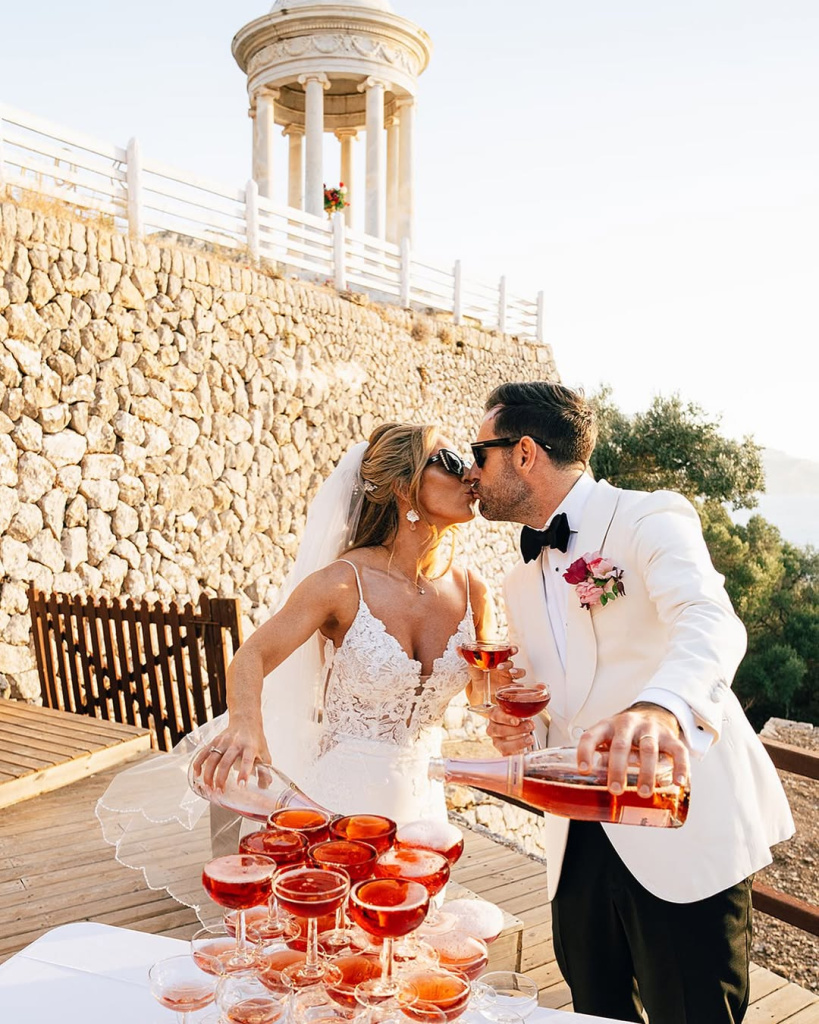
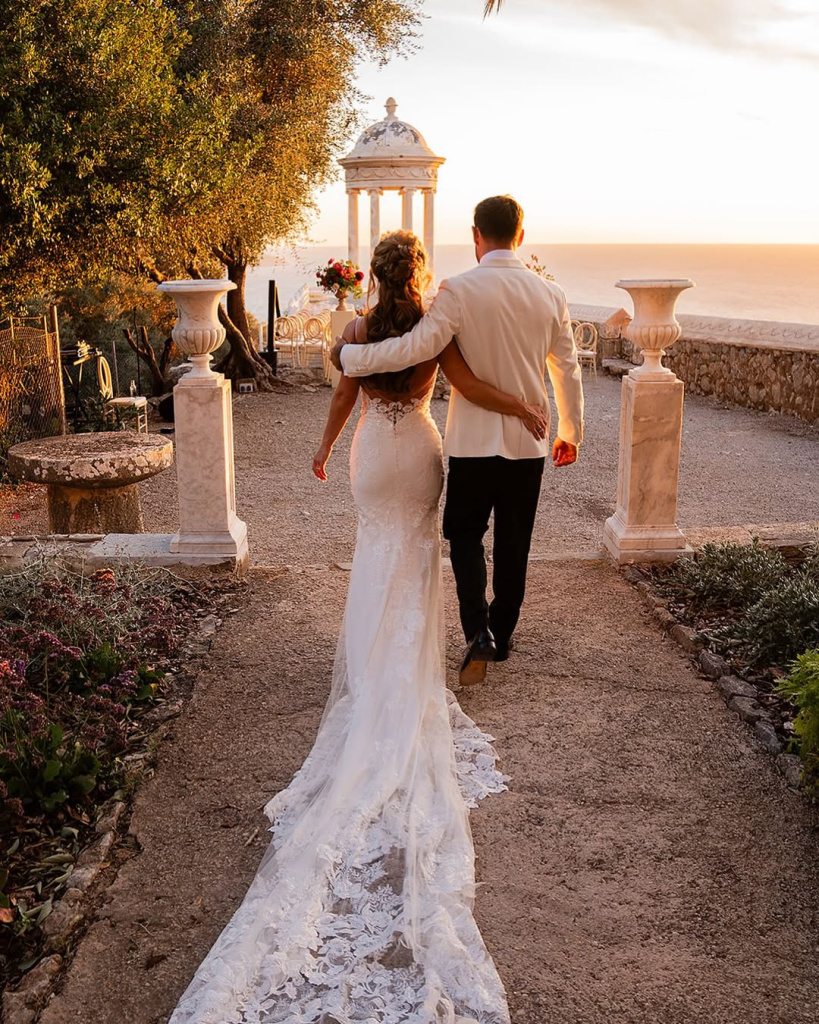
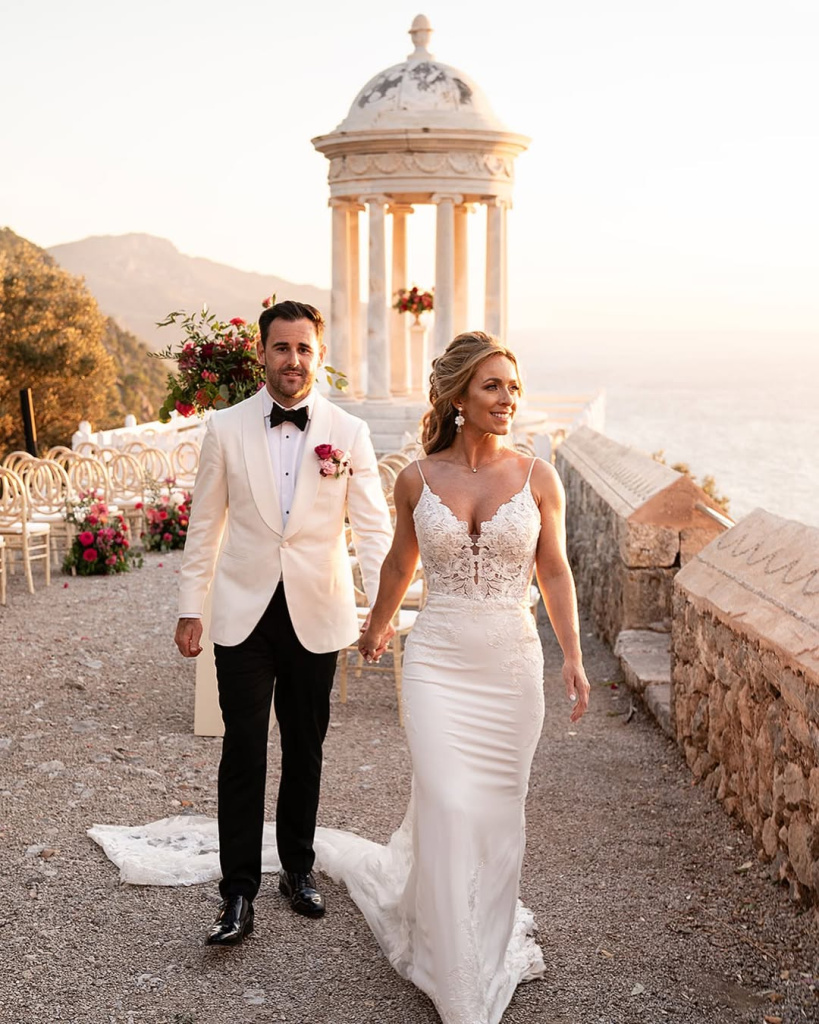
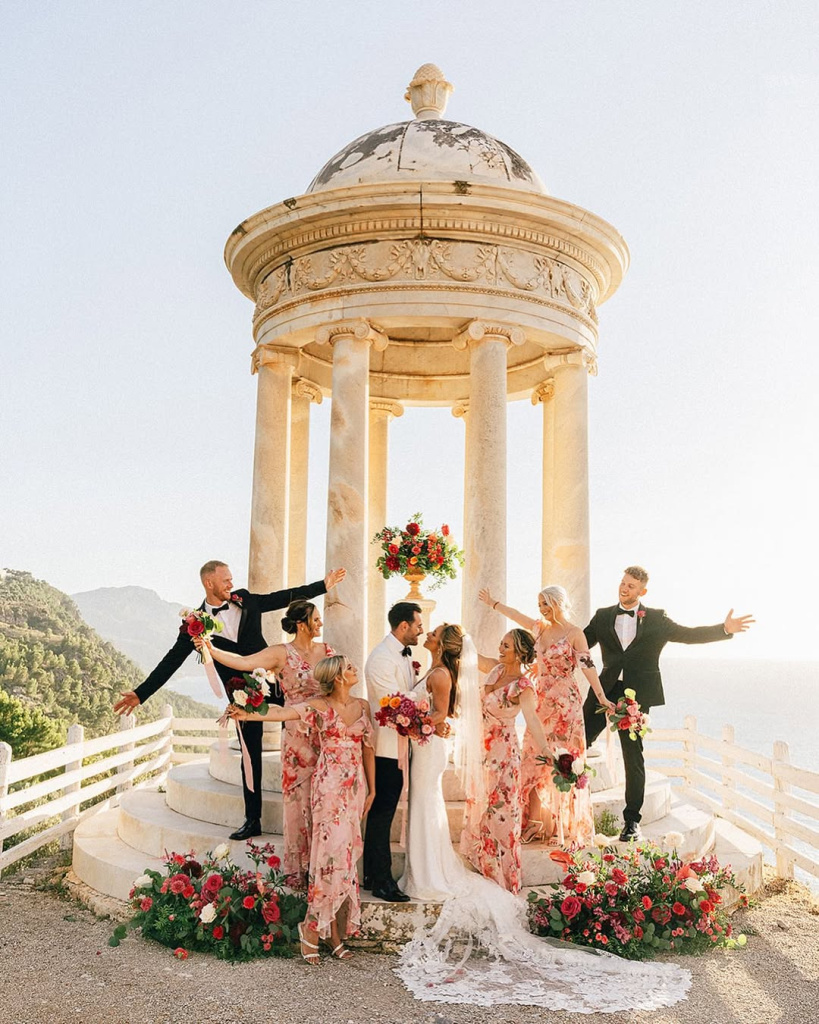
Spain Wedding Etiquette: Essential Tips for Respecting Local Traditions
Understanding local etiquette is a thoughtful way to show respect for Spanish culture and make your celebration even more meaningful. While Spanish weddings are known for being joyful and relaxed, there are still a few traditions and unspoken rules that guests and couples should keep in mind.
Punctuality is one of the most noticeable differences. Unlike many other cultures, it’s completely normal for Spanish weddings to start a bit later than planned—especially if it’s a church ceremony. Guests often arrive close to or just after the scheduled time, and no one bats an eye. It’s also customary to greet guests warmly with a kiss on both cheeks, even if you're meeting for the first time—this applies to both friends and family. Embracing this warmth and informality is part of what makes Spanish weddings so charming and memorable.
Another key etiquette point: attire. Spanish weddings are often formal, stylish events, especially when held in the evening. Guests usually dress to impress—women in cocktail dresses or elegant gowns, and men in suits or tuxedos. If you’re unsure, it’s better to be slightly overdressed than underdressed.





How to Navigate Language Barriers at Your Spain Wedding
While many Spanish wedding professionals, especially in popular destinations, speak English, it’s still helpful to plan ahead in case some of your guests or vendors don’t. With a few simple strategies, you can ensure smooth communication and create an inclusive, stress-free experience for everyone involved.
One of the best ways to overcome language barriers is by hiring a bilingual wedding planner or coordinator. They can act as your go-between, ensuring your wishes are clearly understood by local vendors and helping your guests feel comfortable. You can also prepare printed materials—like ceremony programs, menus, or signage—in both English and Spanish to avoid confusion and make everyone feel welcome. And don’t worry—most people in Spain are incredibly warm and accommodating, and even small efforts to speak the local language (like “gracias” or “salud”) go a long way in building connection and goodwill.




Spain Wedding Health and Safety
Spain is generally a safe and modern country with excellent healthcare and infrastructure, but it’s still smart to prepare for unexpected situations—especially when you're celebrating abroad.
Understand Local Healthcare Access
Spain has a high-quality public and private healthcare system. In case of an emergency, most cities and towns have nearby hospitals or clinics. EU residents can use their European Health Insurance Card (EHIC), while non-EU visitors should have travel insurance that covers medical expenses.
Tip: Keep a list of local hospitals, clinics, and emergency contacts near your wedding location and share it with your guests, planner, or hotel concierge.
Pack a Wedding-Day Health Kit
Have a small emergency kit on hand with essentials like pain relievers, allergy medicine, band-aids, sunscreen, insect repellent (especially for outdoor weddings), and hand sanitizer. You never know when you—or a guest—might need a quick fix.
Stay Sun-Safe
Many weddings in Spain take place outdoors, especially during warmer months. Sun exposure can be intense, particularly in southern regions like Andalusia or the Balearic Islands. Make sure guests have access to shaded areas, hydration stations, and sunscreen.
Advice: For beach or countryside weddings, consider providing parasols, handheld fans, or paper hats as both favors and practical sun protection.
Plan for Alcohol Consumption
Weddings in Spain often include generous wine and cocktail offerings, so it's important to plan ahead if alcohol will be flowing freely. Make sure transportation is arranged for guests returning to their hotels, and consider offering non-alcoholic options to keep everyone balanced and hydrated.
Communicate Emergency Info Clearly
Include an emergency contact card or printed information sheet in your welcome bags or guest folders. This can include your planner’s phone number, local emergency numbers (Spain’s general emergency number is 112), addresses of nearby medical centers, and your hotel’s contact info.







